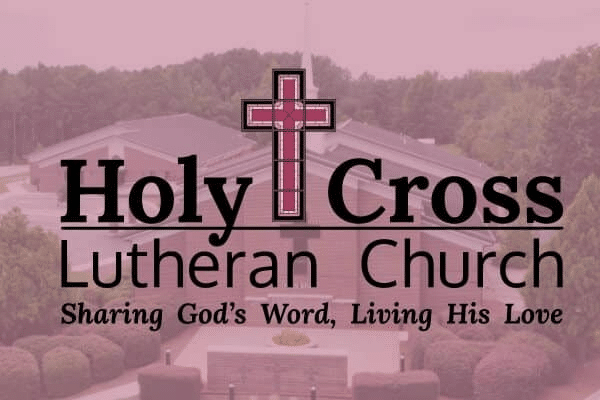
Acts 11:1-18
May 18, 2025
A few years before I attended seminary, I contacted the school to find out the tuition and housing costs. I was determined to go to seminary without having to take out any loans. I was serving in the Army at the time and after receiving an estimate of the costs, I figured over the next few years I would be able to save up enough money to attend the seminary in the first year without a loan. I also inquired of the Army to see if they would be willing to help with the costs of my seminary education since I wanted to be an Army chaplain. I thought if I offered to make a commitment to serve on active duty or in the reserves as a chaplain for so many years that the Army might be willing to help with my seminary costs. Unfortunately, the Army said they did not provide assistance with seminary costs, but that they would welcome me serving as a chaplain in the future once I had completed my seminary schooling. Fortunately, I was able to save up enough money to attend the seminary and by working during the summers of my seminary schooling, I was able to complete my seminary education without having to take out any student loans. Also, soon after graduation, I became an Army reserve chaplain and served in the reserves for many years.
However, about 5 years ago the seminary announced that through the generosity of several donors all residential seminary students would receive free tuition, meaning no seminary students would ever have to pay any tuition costs. “What!? That’s not fair,” I thought, because I worked for several years to save up enough money in order to pay for my seminary tuition. So was I going to get my money back that I paid for tuition over three years? No. About the same time the Army announced that if a person would make a commitment to serve on active duty or in the reserves for so many years they would pay 100% of your seminary tuition costs. “What!? Why wasn’t that available when I was going through seminary? If I had to pay tuition to be an Army chaplain, then everyone should have to pay.” As far as I know, every pastor and Army chaplain before me had to pay tuition, and for about 20 years after I graduated from the seminary, pastors and chaplains had to pay tuition costs. But those changes were made, fortunately because of generous donors to our seminaries and increased government funding to the military, all designed to meet the changing needs of our churches and the Army.
In our first lesson for today, Peter and his fellow Jews experience something done by God that they thought was unfair. When Jesus told Peter and the other disciples, at the beginning of the book of Acts, that they would be His witnesses in Jerusalem, Judea, Samaria, and to the ends of the earth, they probably did not understand the full impact of those words.
Being God’s witnesses not only meant taking the Gospel to people who were different than them, but Peter learned that it meant taking the Gospel to non-Jews. Uncircumcised people were going to become children of God without having to be circumcised and without having to follow a set of rules and laws that God had given to His people hundreds of years earlier to prepare them for the coming of the Messiah. So when Peter was questioned by people in the church about why he went to the home of uncircumcised men and ate with them, Peter explained that one day while he was praying he had a vision of a great sheet coming down from heaven and on the sheet were all kinds of animals. Some were clean to eat according to the laws laid out in the Old Testament book of Leviticus, but others were unclean according to those laws. In those days a devout Jew would not even touch unclean animals, much less eat them. Peter then heard a voice from God say in verse 7, “Rise, Peter; kill and eat.” Peter was convinced that God was making a mistake and said, “By no means, Lord.” But to make His point, God repeated this vision two more times.
Now, maybe this sounds rather odd to us, because we are not 1st century Jews. But this was very difficult for Peter and all Jews to accept, because what God was telling them would wipe out hundreds of years of religious traditions and laws. This didn’t seem fair to the Jews, who for many years had to be circumcised and could only eat certain foods and had to follow all kinds of rules in order to be part of God’s family. But now, people were going to be part of God’s family not by following certain rules and traditions, but simply through faith in the work that Jesus had done for them by His life, death, and resurrection.
What this meant for Peter and the church was that things were going to change. And the change happened quickly, because just as soon as the vision left Peter, 3 Gentiles (non-Jews) knocked on Peter’s door and said that God had sent them. Peter went and ate with them at a Gentiles’ home and the entire Gentile family was baptized. And just as people today become members of God’s family through baptism, so every member of this Gentile family became a child of God through baptism. These baptized Gentiles were now equal in God’s sight with the Jews, and this was hard for the Jews to accept, just as I had a hard time accepting the fact that seminary tuition costs were now covered by the school or the military. The Jews didn’t think the Gentiles deserved the blessings of eternal life, because they hadn’t earned those blessings – like the Jews thought they had by following all kinds of rules and laws.
I’m sure many of us could relate to those Jews, because many times we don’t like change. We hold on to traditions and we fight over things we think are really important, but in reality are probably not that important to God. Over the years churches have argued over things like hymnals, projection screens, worship styles, what color the carpeting should be in the sanctuary, and the list could go on and on. And while there are all kinds of things God probably doesn’t care about, who He cares about is very clear and will never change. Jesus came into the world for all people. He came to save people like you and me by giving His life on the cross, and He came to save people who have rejected Him and who don’t know Him yet.
When Peter reported what had happened, our text tells us at first the people were shocked and silent. Peter’s words and actions caused them to look at God and themselves differently. I’m sure they thought, “Maybe God is asking us to change,” because it says at the end of the text in verse 18 that, “They glorified God saying, ‘Then to the Gentiles also God has granted repentance that leads to life.” And we rejoice with them, because this is how God led His church to include people like you and me. Thank God He led people to re-examine His Word and to trust Him, and that He led people who strayed away from Him to repent and be forgiven, in order to keep moving forward with the mission to share the Good News of Jesus with all people. In addition, thank God that He provided generous donors and adequate government funding so that finances will not hinder people from becoming ministers and chaplains in order to preach the Good News of Jesus with all people.
God still calls us to follow Him today and to battle against complacency, tradition, and selfishness. I’m not saying all traditions should be done away with in the church, but God still calls us to be uncomfortable at times, to change, in order to comfort people with His love and forgiveness. There are people all around us who don’t know Jesus, who are sitting at home, outside playing, shopping, and staying busy with all kinds of activities right now while we are here. How do we reach them? We begin by trusting God, listening to Him, and maybe rethinking what He wants us to do. Maybe God is encouraging you to invite a friend to church or to tell a co-worker that you are praying for them, or to simply introduce yourself to your neighbors and to love them just as they are, in the same way that God loves you. Maybe God is calling you to step out of your comfort zone in some way to reach out to your neighbors, friends, or co-workers. It may not be easy and we may struggle, but we will never regret it. So let us rethink what God might be asking us to do, trust Him, and if necessary be willing to change.


